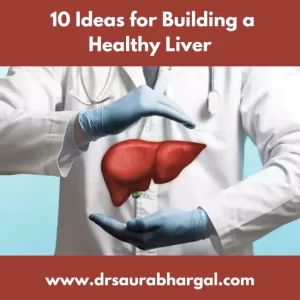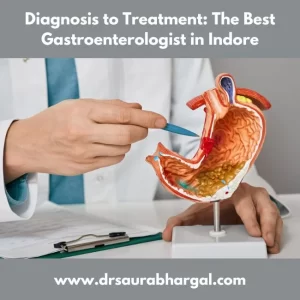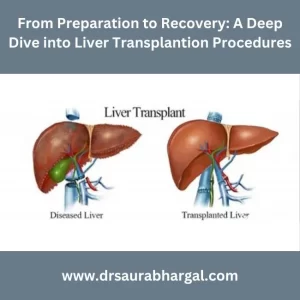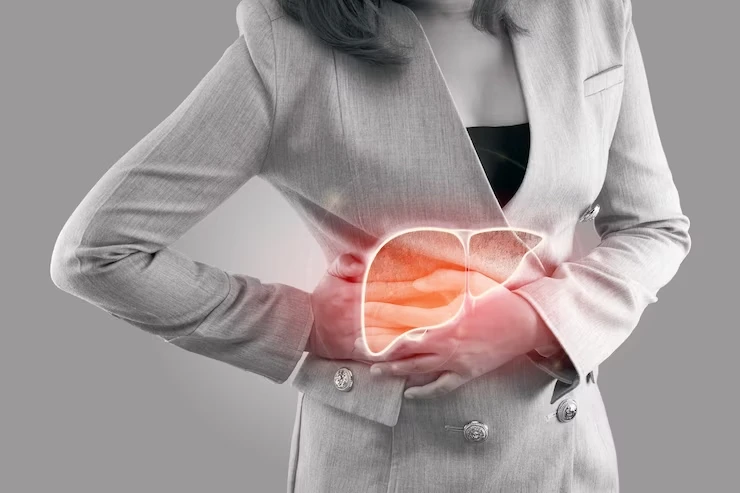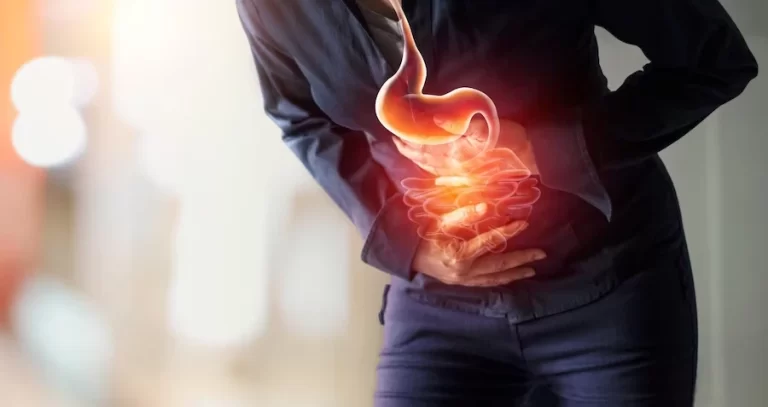Have you ever felt a burning sensation in your chest after eating? Or experienced an unpleasant taste in your mouth? If so, you’re not alone. These symptoms are often caused by acid reflux, a condition where stomach acid backs up into the esophagus. While occasional acid reflux is normal, frequent or severe episodes may be a sign of Gastroesophageal Reflux Disease (GERD).
GERD is a chronic condition that affects millions of people worldwide. It can cause discomfort and pain, and even lead to more serious complications if left untreated. In this article, we’ll explore the causes, symptoms, and treatments of GERD and acid reflux.
Table of Contents
ToggleWhat is Gastroesophageal Reflux Disease (GERD)?
GERD is a chronic digestive disorder where stomach acid flows back into the esophagus, causing irritation and inflammation. The esophagus is the tube that connects the mouth to the stomach. Normally, a muscle called the lower esophageal sphincter (LES) keeps the contents of the stomach from flowing back up into the esophagus. However, in people with GERD, the LES may be weak or relax too often, allowing stomach acid to reflux into the esophagus.
Causes of GERD and Acid Reflux
There are several factors that can contribute to the development of GERD and acid reflux, including:
- Obesity or being overweight
- Hiatal hernia (a condition where part of the stomach protrudes into the chest through a hole in the diaphragm)
- Pregnancy
- Smoking
- Certain medications, such as antihistamines, calcium channel blockers, and sedatives
- Eating large meals or lying down after eating
- Consuming certain foods and drinks, such as spicy or acidic foods, chocolate, coffee, alcohol, and carbonated beverages
Symptoms of GERD and Acid Reflux
The most common symptom of GERD and acid reflux is heartburn, a burning sensation in the chest that may radiate up into the throat. Other symptoms may include:
- Regurgitation (the sensation of stomach contents coming back up into the throat or mouth)
- Difficulty swallowing
- Feeling like there is a lump in the throat
- Chronic cough
- Hoarseness or sore throat
- Asthma-like symptoms, such as wheezing and shortness of breath
Diagnosis of GERD and Acid Reflux
If you’re experiencing symptoms of GERD or acid reflux, your doctor may perform several tests to confirm the diagnosis. These tests may include:
- Upper endoscopy: A procedure where a thin, flexible tube with a camera on the end is passed down the throat to examine the esophagus and stomach.
- pH monitoring: A test where a small probe is inserted into the esophagus to measure the amount of acid present.
- Esophageal manometry: A test where a small tube is inserted into the esophagus to measure the pressure and function of the muscles.
Treatments for GERD and Acid Reflux
There are several treatments available for GERD and acid reflux, including:
- Lifestyle changes: Making changes to your diet and habits can help reduce symptoms. This may include eating smaller meals, avoiding trigger foods, and not lying down after eating.
- Medications: There are several types of medications that can help reduce acid reflux symptoms, including antacids, H2 blockers, and proton pump inhibitors. These medications work by either neutralizing stomach acid or reducing its production.
- Surgery: In rare cases, surgery may be necessary to treat GERD. The most common procedure is called a fundoplication, where the upper part of the stomach is wrapped around the lower esophageal sphincter to strengthen it.
- Natural remedies: Some people may find relief from GERD and acid reflux symptoms by using natural remedies such as ginger, chamomile tea, and apple cider vinegar. However, it’s important to talk to your doctor before trying any new remedies, as they may interact with other medications you’re taking.
It’s important to note that while these treatments can be effective in managing GERD and acid reflux symptoms, they may not work for everyone. It’s important to work with your doctor to find a treatment plan that works best for you.
FAQs about GERD and Acid Reflux
- Is acid reflux the same as GERD? No, acid reflux is a common symptom of GERD, but not everyone with acid reflux has GERD. GERD is a chronic condition that requires medical attention.
- What are the long-term complications of untreated GERD? Untreated GERD can lead to more serious complications, such as esophagitis (inflammation of the esophagus), esophageal strictures (narrowing of the esophagus), and Barrett’s esophagus (a condition where the lining of the esophagus changes, increasing the risk of esophageal cancer).
- Can GERD be cured? While there is no cure for GERD, it can be managed effectively with lifestyle changes and medications.
- Can GERD be prevented? There are several steps you can take to reduce your risk of developing GERD, including maintaining a healthy weight, avoiding trigger foods, and not lying down after eating.
Conclusion
GERD and acid reflux can cause discomfort and pain, but with the right treatment plan, symptoms can be effectively managed. If you’re experiencing symptoms of GERD or acid reflux, it’s important to talk to your doctor to determine the best course of action. Making lifestyle changes, taking medications, and in some cases, undergoing surgery, can all be effective in reducing symptoms and improving quality of life. Remember to prioritize your health and seek help if you need it.


